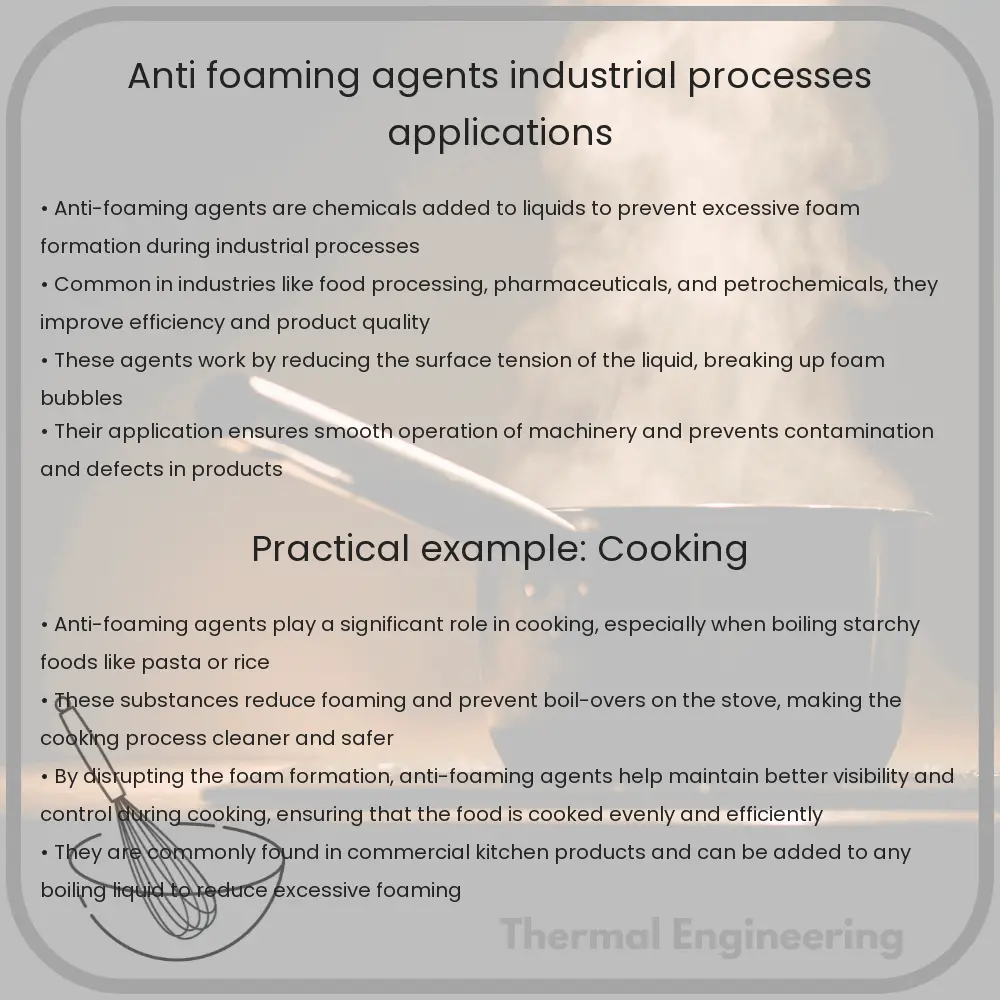Explore the function, types, and applications of anti-foaming agents in various industries to prevent and control foam formation.

Introduction to Anti-Foaming Agents
Anti-foaming agents, also known as defoamers, are chemicals added to liquids to reduce and hinder the formation of foam. Foam formation is a common issue in various industrial processes, and if not controlled, it can drastically affect process efficiency, product quality, and system stability. Anti-foaming agents work by altering the surface tension of the fluid, hence breaking up the foam bubbles and preventing their formation.
Chemical Composition and Types
Anti-foaming agents are made from a variety of compounds depending on their specific application. The most common types include:
- Silicone-based defoamers: These are versatile and very effective in controlling foam in non-aqueous and aqueous systems. They tend to have low toxicity and thermal stability.
- Oil-based defoamers: Comprising white oils, mineral oils, or vegetable oils, these are often used in food processing, paper, and wastewater treatment.
- Water-based defoamers: These are emulsions of oils and waxes in water and are predominantly used in water treatment processes.
- Alkyl polyacrylates: Suitable for a wide range of applications, these defoamers are particularly effective in polymer dispersions.
Principle of Operation
The operation of anti-foaming agents involves primarily the disruption of foam stability. Foam is typically a mass of bubbles created when air or gas gets trapped under a liquid surface. Anti-foam agents work by spreading over the surfaces of these bubbles. The agents disrupt the stability of the bubble walls (lamellae), speeding up the drainage of liquid content from the foam, leading to the collapse of the bubbles.
Industrial Applications
Anti-foaming agents find usefulness across a broad range of industries due to their efficacy in controlling unwanted foaming:
- Food Industry: Used in the processing of beverages, dairy products, and edible oils to prevent overflow and contamination during production.
- Paper Manufacturing: Helps in pulp production and while operating papermaking machines by reducing surface foam and improving the drainage of the pulp.
- Pharmaceuticals: Essential during the manufacture of antibiotics and fermentation processes where excess foam can compromise the quality of medicinal products.
- Wastewater Treatment: Aids in the separation and removal of suspended solids by minimizing foam formation during aeration and sedimentation processes.
Conclusion
Anti-foaming agents are crucial in enhancing the efficiency and stability of industrial operations across various sectors. By effectively controlling foam, these agents help maintain the quality and consistency of products while optimizing the performance of processing equipment. As industries strive to improve production efficiency and product quality, the role of anti-foaming agents is set to grow even more significant.